Text
Why Learn Through Play?
First off, it is a common misconception to think that children are expected to sit down and learn their ABC’s and 123′s, read, write, do math all BEFORE kindergarten. Not sure where this all stems from, but I always tell families, that is what KINDERGARTEN and grade-school is for. As a pre-k teacher, it is my job to make sure they are developing the skills to be ABLE to learn in a kindergarten/grade-school setting. Children need to learn how to self regulate, problem solve, focus & engage, persevere through challenges, be confident in trying, ask questions, reflect, SOCIAL SKILLS and overall be independent. Not only that, children need to develop certain muscles, fine and gross motor muscles, to even hold a pencil or cut with scissors correctly, button, zip, tie shoes, etc. Without these skills, how can we expect children to learn more difficult subjects if they can’t sit still, concentrate, work with peers on projects, or calm themselves down without a teacher to hold their hand? (As i am typing this right now, I am watching “girls incarcerated, young and locked up” on netflix and it is a very good example of what happens to children who do not fully develop these important life skills. Side-note, it is an entertaining show.)
Allowing a generous chunk of free play will help develop these skills in a very organic and relevant way for children. When something is personal or relevant to them, the information is internalized and learned much faster. Free play invites curiosity, exploration, experimenting, making predictions, finding conclusions. It creates the opportunity for cooperative play, conflict-resolution, problem solving, thus developing social skills and the ability to recognize emotions, creating situations to develop self regulation and moral sense. It isn’t that ABC’s and 123′s are NOT being taught in class, rather it is being learned organically on their own terms through play. I am there to observe, and scaffold their learning, constantly asking them open ended questions to help them think, reflect and come to their own answers. That being said, I try to turn situations into a learning experience any chance I get and reinforce their knowledge of numbers, counting, simple math, letter and phonetic recognition, reading etc.
Believe it or not, I do have one student who can legitimately read whole books to me. Its funny because I can’t hide things by spelling words out to teachers because he can sound out the letters and figure out what I am saying. He can also tell when I skip words or sentences in a book and does not let me off the hook! It is amazing to see their knowledge grow significantly when they are in control of their learning and because of that, they grow their self confidence and feel competent. This is what I would hope to foster in every child I work with before they move on to kindergarten.
There are so many more beneficial factors to free play and I encourage you to look further into it to find out more!
5 notes
·
View notes
Text
Teaching Boys
Over the 5 years I’ve been in Early Childhood Education, this is probably the first year I’ve encountered such a…. boy-ish class. I originally thought I had way more boys than girls. While i do have more boys in the class than girls in general, its not by much. ( 3-4 girls each day vs 4-5 boys a day) I realized what makes my class seem so “boy heavy” is because of the amount of energy each one brings to class and the competition between them.
As a result, there has been a lot of “rough housing,” a lot of power struggles between them, and overall loudness . In the beginning of the year, it wasn’t like this at all. but somewhere along the way, something changed in them and i wasn’t sure what it was.
I had the chance to attend a conference where the topic was about teaching boys. It had really opened my eyes and changed the way i saw my class. Some of the important things i took away:
-Boys have testosterone SPIKES many times through out the day- causing random bursts of energy. Although upon further internet searching, there seems to be online debate about the research and validity of this. if there was one thing i learned in psychology about research, it was to take it with a grain of salt. i wish i was able to find out more about this, but i don’t have access to reliable sources. If it were to be true, then it explains a lot for me. True or not, it certainly did change the way I see the boys in my class, and the needs that must be met. I guess we’ll just call them “energy spikes” since that is what I am seeing in class.
-Boys’ brains develop SLOWER than girls, particularly the right brain that articulates emotions, creativity, personal relationships and non-verbal cues. Whats more, because their right brain isn’t as fully developed as the left, they retreat to the left brain for answers; the left brain is logical, linear, and deals with order. This is why consistency, follow throughs and having a steady schedule is important.
-Boys like to test their STRENGTH, hence the rough housing, which is why gross motor skills are just as important to help develop. Not to mention, gross motor movement correlates to brain development as well. Dances, exercises or games that involve “crossing the midline” are great for helping build all quadrants of the brain.
With all of these things in mind, the energy spikes, slower brain development and testing strength, it was easier to see what i needed to change about the way i teach and approach situations.
A goal of mine with every class is to set up a safe environment where i can say “Yes, you can do that” to most if not all requests that they have. In the case of rough housing, testing their strengths, being loud, it is my job to find a way for them to appropriately exercise these things.
So far, my class has been MUCH happier in general with this new mindset. But I have a long way to go in figuring out how exactly I can help them meet their needs within the classroom.
0 notes
Text
Just gonna reblog an old post from a while back as it is relevant to my recent handlettered quote of the day
Imagine how the world would be today if everyone had more confidence in themselves…. What would you be like? Would you be an amazing artist? Musician? Dancer? Or invent the next best thing? Save a life? Be happier? Healthier? Would you become a billionaire? Or Help the poor? Change the world?
That’s what I would like to foster in every kid in my class; confidence. In everything they do. When they speak, when they write, when they read, when they draw, even if they really don’t know how to. I want them to be proud and confident in trying and exploring new things so one day, they can grow up to be the best versions of themselves. And that’s why I love what I do, because I get to influence the future in what may seem like a tiny way. But I know I am building the foundation for a happy, healthy life in the children I work with.
Do more of what makes you happy.
1 note
·
View note
Text
Time Out
People have been using “time out” for a very long time when dealing with children. However, somewhere along the line, we forgot what “time out” was really about. Many use it as a consequence, or a punishment to help discipline kids. And some say “time out” doesn’t work for “disciplining.” I would agree that “time out” is not effective because it isn’t being used as originally intended.
Time out is actually designed to calm a child down BEFORE something irrational happens. If you read my earlier blog posts, children need a lot of help with emotion regulation and self regulation because the part of the brain that processes that information has not developed yet. If you see a child about to explode and do/say something that is not okay, remove him from the situation, let him go into a nice quiet area, practice deep breathes, and talk him through what he’s feeling.
However, this is easier said than done. There are moments where I am not there to catch them before they “flip their lids.” And it happens. I still tell them to “take space” in the area known as “the quiet area” without a time restriction, other than their own. I tell them “please take space in the quiet area until you are ready to talk about being safe” or something along those lines. Sometimes they will calm down on their own after a few minutes and talk. Other times, I will check on them to see how they are doing. There are a few items I keep in there to help them calm their bodies: calming bottles (which are those bottles with slow moving glitter) comfy pillows, books, stuffed animals and squishy toys for tension. This area isn’t limited to just “time outs” or taking space as I like to call it, but it’s also for kids who want to be by themselves for a bit for whatever reason; feeling sad, mad, missing mom or dad, feeling overwhelmed, or if someone wants to lay down because they’re tired. It is a cozy space for them to do these things.
“Time out” should be a positive experience to prevent a harmful situation from happening, rather than a consequence for something that already happened. This makes “time out” more meaningful to the child, and helps them create space to think through a situation before acting.
That is not to say that “time out” or other forms of punishment (taking away toys, tv time, etc.) do not work; short term, maybe they do. However, positive discipline yields long lasting results. If you put in the time and energy, it is well worth it in building stronger, healthier minds.
0 notes
Text
psychology and ECE
one of the things i loved studying about most during my psych undergrad years was learning about the BRAIN and how it works. so naturally, i am drawn to the “biopsychology” aspect of early childhood education and i get excited when i learn how the behaviors i see in class relate to the development of the brain. Once you can understand brain development and how it connects to your kids current age/stage, things make so much more sense.
I recently went to a teacher conference where two psychologists spoke about their research with brain development and early childhood education. There were many things i took away from this conference, but my favorite one was of a research study they did with children playing the game “head, shoulders, knees and toes.” they figured out a way to “measure” their ability to use self regulation by using this game. However, the game was tweaked to be a little bit more challenging. They switched the actions to each word. for example, when they said “head” the children were instructed to touch their shoulders. and vice versa. By switching the words and actions around, it requires the children to “stop” and think before reacting, a very simple skill needed for self regulation. The better the children are at this game, the better their self regulating skills are. (However, this game does not strengthen the skill, it is just a test to see if they are able to do it well)
I’ve been reading about brain development and how it pertains to children; two important things i think are good to know:
1. differences between left and right brain
2. differences between the “upstairs brain” and “downstairs brain”
3. GOTCHA there is a third: the importance of connecting the left and right as well as the up and down stairs brain.
In a nutshell (cause i dont want to bore you) left brain is your logical brain, right brain is your emotional brain. making connections between these two will help children recognize their emotions with the right, while using the left to help regulate. One very important fact to know- the right brain is where most children will react from- partly because the left brain is not as developed yet. if a kid is reacting from their “right brain” (very dramatic or emotional) try “speaking to their left brain” to help them make the connection between what their feeling emotionally to whats really going on at that moment.
the “upstairs brain” is your higher functioning brain- basically what separates us from animals. the “lower” brain is your “reptilian brain”where basic functions take place; breathing, fight or flight and big emotions such as fear and anger. the important thing to know here is a kid’s “upstairs” brain is not fully developed therefore, need a lot of help when getting through tough situations- and there are times (even when you are an adult) where they “flip their lids” as they like to say- where the downstairs brain takes over and the upstairs brain no longer functions. this means, there is no logical explanation you can give to calm this kid down. everything goes through one ear and out the other. if your kid flips their lid, calm them down first; hug them, verbally observe how they are feeling in the moment, validate their feelings, relate, etc. maybe even move them away from the chaotic environment. then talk about the situation. Your message will be better received.
yay for BRAINZ
1 note
·
View note
Text
A little background about my teaching style and how the class operates:
My “teaching style” comes from things I’ve learned from the different schools I have worked at over the past 5 years. What inspired me to go into the field of ECE was actually through my internship at the psychiatry clinic, which had a program called “dino school.” they helped children/families deal with “problem behaviors” using positive reinforcement methods. the techniques i learned from this program i still use today in my classroom!
Each school I worked with had their own philosophies they stuck to; reggio emilia, montessori, highscope, and I learned so much from each of them. The current school i work for is a little different. Each teacher has their own teaching styles and philosophies, and starting out, I wasn’t sure how i was going to grow from working here. But it was at this school where I found who I was as a teacher after working here for 3 years. So what is my teaching style now exactly? A concoction of everything, really! I heavily rely on the high/scope KDI to help guide my curriculum and try to stick to the “Plan-Do-Review” methods. My style is a very play based, emergent curriculum, meaning I base the activities off of the children’s interests and developmental needs while still pulling from Reggio Emilia and Montessori philosophies as well. If there is one thing i would want you to take away from these 40 days of ECE, it is the power of play. more on that in the next blogs to come.
Stay tuned.
0 notes
Photo

Sometimes we forget that kids have their bad days too and really just need a big hug. They might not have the same stressors we do, but they can get stressed out, nonetheless. What’s more is they don’t have the skills or brain development to deal with it like adults do. It’s our job to teach and show them how to cope with big feelings. #40daysofECE #handlettering #childadvocate
5 notes
·
View notes
Text
Why 40 days of ECE?
Everyday, I reflect on what happened in the classroom and what I can do to improve my class’ learning. This year I have a VERY boy heavy class, and honestly, I am not well versed in dealing with so. much. testosterone. So I’ve been trying to improve my ECE knowledge and find ways to better help my class in this sudden shift in development and I thought I would share the info I learn along the way, as well as knowledge I already have to my community. My hope is that it inspires someone, anyone; teachers, parents (new and old), aunts, uncles, grandparents, cousins, friends, to get to know the children in their lives a little bit more and maybe create more child advocates. It has become apparent, at least to me, now more than ever that we are the frontlines for fighting for the next generation’s mental health and it starts here, with early childhood education.
0 notes
Photo

My first post for my 40 day challenge on reflecting on ECE, producing inspirational handlettered quotes and sharing my knowledge with you to help you understand children just a little bit more. stay tuned!
0 notes
Photo

Beignets!!!
#made with tumblr#gif#foodie#foodgasm#foodporn#fooodstagram#dessert#bakedgoods#baking#pastries#neworleans#nawlins
0 notes
Photo

Flowers for teacher appreciation week ❤️
0 notes
Video
vine
when u have anxiety but ur still spongebob af
394K notes
·
View notes
Photo

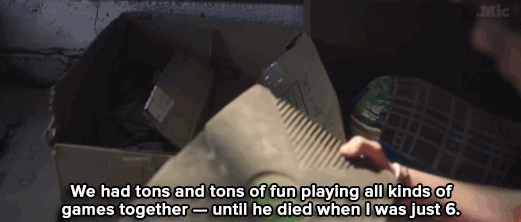
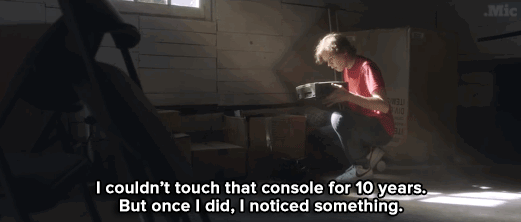
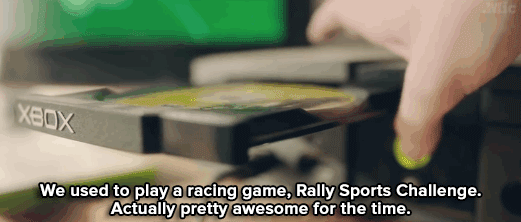
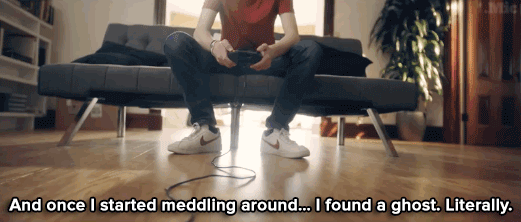

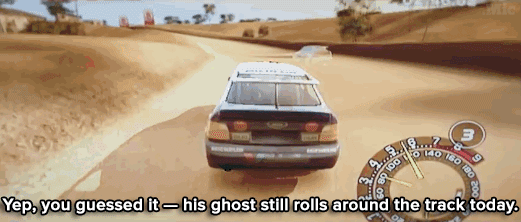
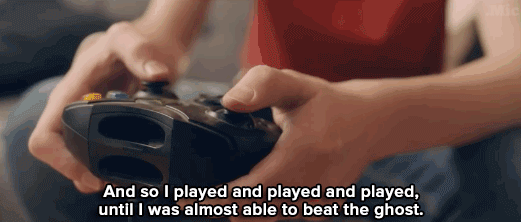


Watch: Can video games be a spiritual experience?
Follow @the-future-now
278K notes
·
View notes
Photo



Decor for the dessert table at my grammas 90th!
1 note
·
View note



